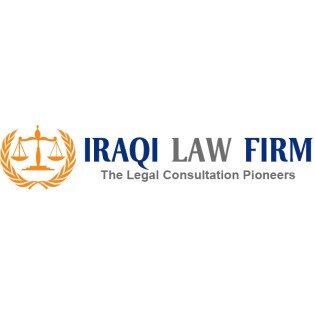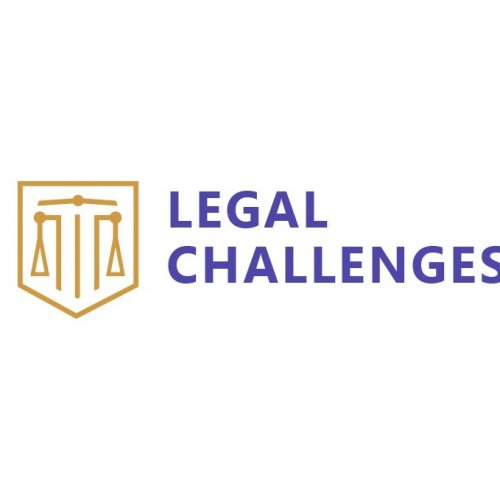Best Private Equity Lawyers in Baghdad
Share your needs with us, get contacted by law firms.
Free. Takes 2 min.
List of the best lawyers in Baghdad, Iraq
About Private Equity Law in Baghdad, Iraq
Private equity involves investment in private companies that are not listed on public stock exchanges. In Baghdad, Iraq, this financial activity is growing as the country continues to rebuild and attract both local and foreign investors. The sector encompasses a broad range of transactions, such as venture capital deals, buyouts, and growth capital investments. Because Iraq's legal and regulatory framework is still developing post-2003, private equity transactions often require a nuanced understanding of local business practices, compliance requirements, and investment procedures. Lawyers who specialize in this area are instrumental in guiding investors through the complex landscape of Iraqi business law.
Why You May Need a Lawyer
Engaging a qualified private equity lawyer in Baghdad can protect your interests and ensure your transactions comply with all local laws. Common situations where legal help is advisable include:
- Conducting due diligence before acquiring or investing in a company
- Structuring investment agreements and shareholder arrangements
- Navigating regulatory approvals and licensing requirements
- Negotiating deal terms and exit strategies
- Addressing disputes between investors, partners, or target companies
- Understanding tax consequences and liabilities of investments
- Ensuring compliance with anti-money laundering and anti-corruption regulations
- Facilitating cross-border investments and working with foreign exchange controls
Local Laws Overview
Private equity activities in Baghdad are subject to various Iraqi laws and regulations. Key legal aspects include:
- Company Law No. 21 of 1997 (as amended): Governs how companies are formed, operated, and managed in Iraq, including provisions for ownership structure and shareholders’ rights.
- Investment Law No. 13 of 2006 (as amended): Provides incentives for foreign and local investors, such as tax breaks and legal protection for investments.
- Regulations on Foreign Ownership: While there are opportunities for foreign private equity in Iraq, there may be sector-specific restrictions. Registration and documentation with authorities such as the Iraq National Investment Commission or local investment commissions are often required.
- Capital Markets: The Iraqi Stock Exchange and related securities regulations come into play if a private equity strategy involves public offerings or exits.
- Anti-Corruption Laws: Iraq enforces anti-bribery and anti-money laundering statutes that must be carefully navigated in fund formation and deal-making activities.
- Dispute Resolution: While Iraqi courts have jurisdiction, arbitration clauses are common in private equity contracts, allowing for resolution through international arbitration bodies.
Frequently Asked Questions
What is private equity and how does it work in Baghdad?
Private equity is investment in non-public companies, usually through the purchase of shares or assets. In Baghdad, such investments are structured in line with Iraqi corporate and investment regulations, often to support business growth or restructuring.
Can foreign investors participate in private equity in Iraq?
Yes, foreign investors are allowed. However, certain sectors have restrictions on foreign ownership. Foreign investors must also adhere to registration and investment guidelines under the Investment Law.
What government approvals are needed for private equity deals?
Depending on the sector and investment size, approvals may be required from the Iraq National Investment Commission, local investment commissions, and sector-specific regulators.
How are disputes typically resolved in private equity deals?
Disputes can be settled in Iraqi courts or through arbitration if stipulated in the contract. Many prefer international arbitration to ensure neutrality.
What taxes are associated with private equity investments?
Investors may be subject to income tax, corporate tax, and sometimes withholding tax. Tax incentives exist for certain investments under the Investment Law, so legal advice is important for tax planning.
Is due diligence important before investing?
Due diligence is crucial. It assesses the legal, financial, and operational state of the target company, uncovering any hidden liabilities or risks.
Are there currency controls affecting private equity?
Yes, Iraq has foreign exchange controls. Transferring funds into and out of Iraq may require approvals and compliance with Central Bank regulations.
What are common structures for private equity investments?
Investments often use limited liability companies or joint stock companies due to flexibility in ownership and management.
How are investor rights protected in Iraq?
Investor rights are outlined in company law and investment agreements, with additional protection for foreign investors under the Investment Law.
Can private equity investments exit through public markets in Iraq?
Yes, but exits via the Iraqi Stock Exchange require compliance with securities regulations and listing rules. Other exit strategies include trade sales and buybacks.
Additional Resources
If you seek more information or support regarding private equity in Baghdad, consider these entities:
- Iraq National Investment Commission (NIC): The primary body overseeing foreign and local investments, offering guidance on regulatory requirements and incentives.
- Baghdad Chamber of Commerce: Supports business operations, provides market insights, and can help with company registrations.
- Central Bank of Iraq: Regulates currency control, foreign exchange, and financial compliance that often impact private equity transactions.
- Ministry of Trade: Responsible for company registrations, licensing, and business compliance.
- Iraqi Bar Association: Directory of licensed legal professionals specializing in private equity and corporate law.
Next Steps
If you are considering or navigating a private equity transaction in Baghdad, begin by consulting an experienced local lawyer who specializes in this field. They can:
- Review your investment objectives and recommend the best legal structure
- Coordinate due diligence and risk assessments
- Draft and negotiate investment agreements tailored to local law
- Ensure compliance with all regulatory and tax obligations
- Represent you in disputes or regulatory matters
Lawzana helps you find the best lawyers and law firms in Baghdad through a curated and pre-screened list of qualified legal professionals. Our platform offers rankings and detailed profiles of attorneys and law firms, allowing you to compare based on practice areas, including Private Equity, experience, and client feedback.
Each profile includes a description of the firm's areas of practice, client reviews, team members and partners, year of establishment, spoken languages, office locations, contact information, social media presence, and any published articles or resources. Most firms on our platform speak English and are experienced in both local and international legal matters.
Get a quote from top-rated law firms in Baghdad, Iraq — quickly, securely, and without unnecessary hassle.
Disclaimer:
The information provided on this page is for general informational purposes only and does not constitute legal advice. While we strive to ensure the accuracy and relevance of the content, legal information may change over time, and interpretations of the law can vary. You should always consult with a qualified legal professional for advice specific to your situation.
We disclaim all liability for actions taken or not taken based on the content of this page. If you believe any information is incorrect or outdated, please contact us, and we will review and update it where appropriate.

















